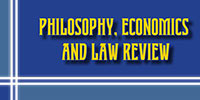Lyudmila RYBALCHENKO
Ph.D. (Economics), Associate Professor (Dnipropetrovsk State University of Internal Affairs), Ukraine
ORCID iD: orcid.org/ 0000-0003-0413-8296
luda_r@ukr.net
Eduard RYZHKOV
Ph.D. (Law), Associate Professor (Dnipropetrovsk State University of Internal Affairs), Ukraine
ORCID iD: orcid.org/0000-0002-6661-4617
revord924@ukr.net
Serghei OHRIMENCO
D.Sc. in Economics, Professor, (Laboratory of Information Security of Moldova Economics Academy), Moldova
ORCID iD: orcid.org/0000-0002-6734-4321
osa@ase.md
UDC 330.5; 338.26
DOI 10.31733/2786-491X-2021-25-36
Keywords: national security, national economic security, threats to economic security, modeling of national security, military power of the state, globalization processes, integral index, regression model
Abstract. The national economic security is a complex and multilevel structure. In addition, it is an integral characteristic of the state of the economic system, since the system includes a number of subsystems – the most important, interconnected structural components of economic security, reflecting the functioning of the economy separate sectors. The main task of the state is to ensure a guaranteed level of security for all its constituent components, including methods of neutralizing the negative impact of internal and external threats. The dynamics of such macroeconomic indicators as: gross domestic product, inflation, money supply have been investigated. The volume and level of expenditures on national defense financing are analyzed, which testify to the provision of the necessary conditions for the countryʼs defense capability. An integral index of the countryʼs economic security has been constructed and factors that have a negative impact on the level of economic security of the country have been identified. The comparison of the state of economic development of Ukraine with other countries of the world by the index of global competitiveness, the quality of populationʼs life, the level of social development and military power has been made. A multi-factor multiple regression model of Ukraineʼs economic security has been constructed and factors have been identified that play a significant role in threatening the countryʼs economic and national security.
References
- Asghari, M. (2017). National Security and Economic Growth. Iranian Economic Review, 21(4), 905-924, https://ier.ut.ac.ir/article_64087.html.
- Chiwei, Su, Yingying, Xub, Hsu, Ling Changc, Oana-Ramona, Lobontd, & Zhixin, Liu. (2018). Dynamic Causalities between Defense Expenditure and Economic Growth in China: Evidence from Rolling Granger Causality Test. Defence and Peace Economics, https://www.researchgate.net/publication/32614792 Dynamic Causalities between Defense Expenditure and Economic Growth in China Evidence from Rolling Granger Causality Test.
- Constitution of Ukraine. (2021), https://zakon.rada.gov.ua/laws/show/254%D0%BA/96-%D0%B2%D1%80#Text (in Ukrainian).
- DʼAgostino, G., Dunne, J. Paul, & Pieroni, L. (2019). Military Expenditure, Endogeneity and Economic Growth. Journal Defence and Peace Economics, 30, 509-524.
- Dakurah, H., Davies, S., & Sampath, R. (2001). Defence Spending and Economic Growth in Developing Countries. A Causality Analysis. Journal of Policy Modeling, 2(3), 651-658. https://doi: 10.1016/SO161-938(01)00079-5.
- Dimitraki, O., & Menla, Ali, F. (2015). The long-run causal relationship between military expenditure and economic growth in China: revisited. Defence and Peace Economics, 26(3), 311-326.
- Dunne, J. Paul, & Tian, N. (2014). Military Expenditure, Economic Growth and Heterogeneity. Journal Defence and Peace Economics, 26, 15-31.
- Economic Data and Statistics on the World Economy and Economic Freedom. 2020 Index of Economic Freedom. (2021), https://www.heritage.org/index/ranking.
- Financial portal of the Ministry of Finance of Ukraine. (2021), http://index.minfin.com.
- Kharazishvili, Yu., & Drones, E. (2014). Predicting indicators, thresholds and the level of economic security of Ukraine in the medium term. NІСD. (in Ukrainian).
- Kollias, C., Mylonidis, N., &Paleolodou, S. (2007). A Panel Data Analysis of the Nexus between Defence Spending and Growth in the European Union. Defence and Peace Economics, 18(1), 75-85, https://doi: 10.1080/10242690600722636.
- Krepinevich, Andrew F., Jr. (2010). National Security Strategy in an Era of Growing Challenges and Resource Constraints. Center for Strategic and Budgetary Assessments Perspective, June.
- Levit, Mindy R. (2010). Analyst in Public Finance, Government and Finance Division. National Security Strategy.
- Military Strength Ranking 2020. (2021), https://www.globalfirepower.com.
- Nanto, Dick K. (2011). Economics and National Security: Issues and Implications for U.S. Policy. Congressional Research Service.
- Navarro, P. (2018). Why Economic Security Is National Security, RealClear. Politics, https://www.realclearpolitics.com/articles/2018/12/09/why_economic_security_is_national_security_138875.html.
- Pugach, A., & Matkovskiy, А. (2014). Analysis the Threats to Economic Security of Ukraine in Modern Conditions of Functioning the National Economy. European Applied Sciences. Germany, 2.
- Quality of Life Index 2020. (2021), https://www.numbeo.com/quality-of-life/rankings.jsp.
- Shahbaz, M., Afza, T. & Shabbir, S. (2013). Does Defence Spending Impede Economic Growth? Cointegration and Causality Analysis for Pakistan. Defence and Peace Economics, 24(2), 105-120, https://doi: 10.100/10242694.2012.723159.
- Social Progress Index 2020. (2021), https://www2.deloitte.com/ua/uk/pages/press-room/press-release/2020/social-progress-index-results.html.
- State Statistics Service of Ukraine. (2021), http://www.ukrstat.gov.ua. (in Ukrainian).
- Ukraineʼs Position In The Rating Of The World By Global Competitiveness Index 2017-2019. (2021), http://edclub.com.ua/analityka/pozyciya-ukrayiny-v-reytyngu-krayin-svitu-za-indeksom-globalnoyi-konku rentospromozhnosti-2. (in Ukrainian).
- Wijeweera, A., & Webb, M. (2009). Military Spending and Economic Growth in Sri Lanka: ATime Series Analysis. Defence and Peace Economics, 20(6), 499-50. https://doi: 10.100/10242690902868301.
